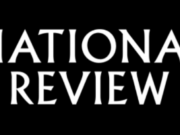President Trump set off another mini-firestorm this week with his reaction to an anonymously-authored New York Times op-ed in which the author “vowed to thwart parts of [Trump’s] agenda.” As is so often the case, Trump took to Twitter, writing, “If the GUTLESS anonymous person does indeed exist, the Times must, for National Security purposes, turn him/her over to government at once!” In another tweet he suggested “treason.”
Cries of “treason” have become pretty common these days (as just one example, remember that both critics and supporters of former President Barack Obama’s Iran deal accused the other side of “treason”), and the claim of “national security” has long been used by partisans on both sides to justify suppression of opposing speech. It is worth remembering that both rationales are, perhaps more often than not, mere pretexts for silencing views one doesn’t like. The president’s anger at a disloyal staffer who is vowing to frustrate his policies is understandable, and if his identity is learned, firing is an appropriate response. But the New York Times piece is not “treason,” it is not a national security issue to find this person, and the president should not be haranguing the New York Times about disclosing this author or others. It’s that pesky First Amendment thing.
Just as Obama and Senate Democrats set a tone of hostility towards Tea Party groups that ultimately led to the IRS targeting scandal—which they did through repeatedly denouncing such groups as threats to democracy—Trump is setting a tone in which millions of his followers on the right can be expected to become more hostile to his critics and their right to speak. And as has happened in the past, it is not hard to imagine overly-exuberant government officials seeking to undertake what they perceive as the president’s bidding, at the expense of the First Amendment.
This needs to stop, and stop now.
There’s a final point to this, though, that deserves attention. No one thinks for a moment that the New York Times is going to “turn over” its anonymous diarist “to government.” But the Times is protecting its author because his or her “job would be jeopardized by its disclosure.” And the Times thought it important to publish these anonymous thoughts because it “believe[s] publishing this essay anonymously is the only way to deliver an important perspective to our readers.”
Yet the New York Times has been a big supporter of ever more disclosure of the identities of persons who finance public debate. It has supported the so-closed “DISCLOSE Act” and regularly rails against “dark money.”
Does it not occur to the Times that perhaps its anonymous writer ought also be able to contribute to candidates or organizations critical of President Trump without “jeopardizing” the anonymous writer’s job? How about other people in similar situations? What about a Trump critic who happens to work for the Trump Organization? What about a corporate officer of a company with long-standing government contracts, or one that hopes to bid fairly in the future?
Many people who will never be granted a platform as large as a New York Times op-ed face possible retaliation for their views, whether from government officials, employers, or the online mob. Yet the Times supports a crackdown on the decidedly less influential means of speaking that are available to them – contributions to like-minded candidates and causes.
If we want better politics, we need better judgment and better language by those in power. But we also need to recognize that forced disclosure can cut off the flow of information, and open the door to government abuse. I don’t actually expect the New York Times to learn this lesson—it always thinks of itself as entitled to special rules—but perhaps others who consider this incident will.
Bradley A. Smith is a contributor to the Washington Examiner’s Beltway Confidential blog. He is chairman of the Institute for Free Speech and served on the Federal Election Commission from 2000 to 2005. He is a visiting fellow at the James Madison Program at Princeton University.














